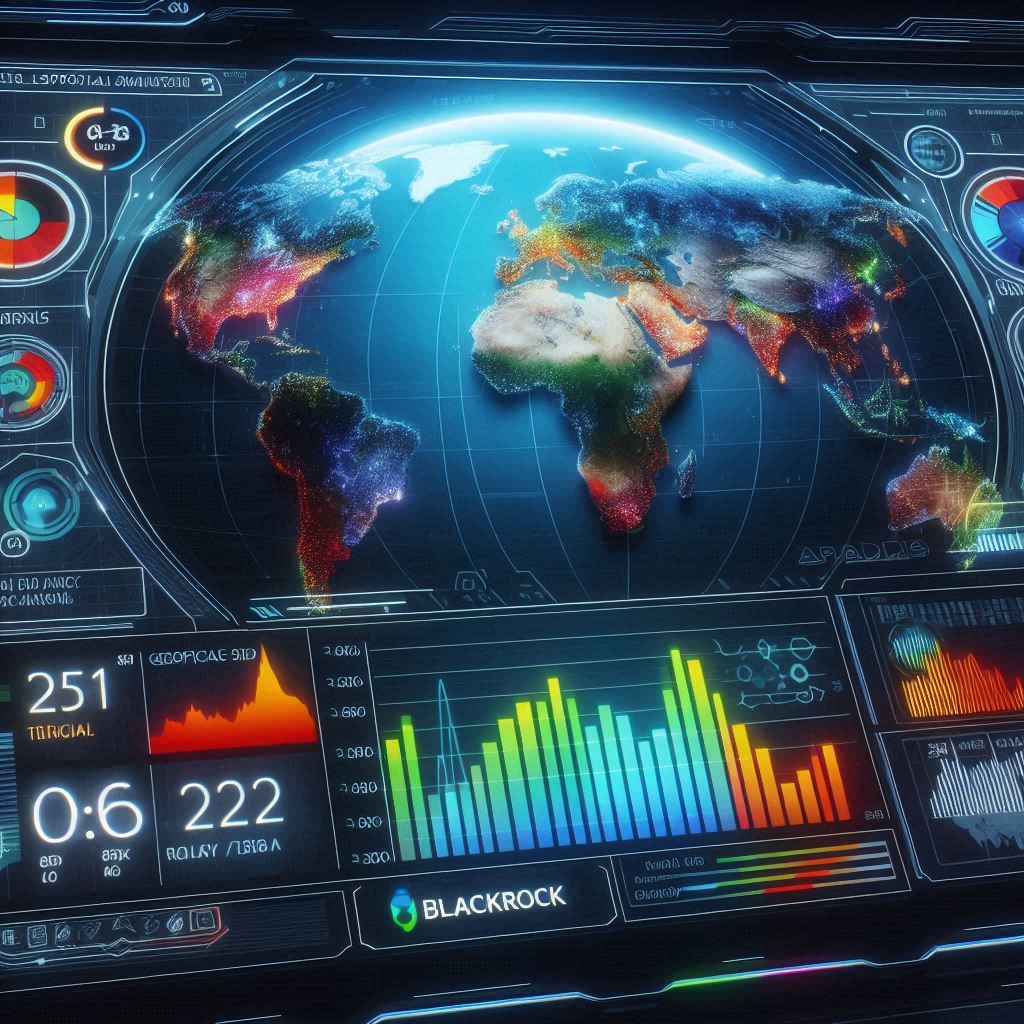
Understanding the BlackRock Geopolitical Risk Dashboard
In this discussion, we’ll navigate the foundations of modern portfolio theory, intertwining perspectives on mass psychology, technical analysis, and cognitive bias while drawing from the insights of distinguished thinkers throughout history. At the heart of this exploration is the BlackRock Geopolitical Risk Dashboard, a tool designed to help investors make sense of the interplay between global events and market behaviour.
The Interplay of Geopolitics and Markets
The BlackRock Geopolitical Risk Dashboard offers a unique set of tools that allow investors to assess how geopolitical events influence market volatility. Geopolitical risk refers to the potential for political, economic, or military events to disrupt markets, and understanding these risks is crucial for informed decision-making. Warren Buffett, a proponent of value investing, famously advises that one should be “fearful when others are greedy and greedy when others are fearful.” His perspective highlights the importance of understanding the broader emotional state of the market, which geopolitical events can often sway.
Mass psychology plays a significant role in how markets react to geopolitical risks. For example, when tensions rise between major global powers, investors may panic, leading to a sell-off. George Soros, known for his theory of reflexivity, suggests that markets are driven by investors’ perceptions and biases. This means that the mere anticipation of a geopolitical event can lead to real changes in market prices, even before the event occurs.
The Role of Technical Analysis in Understanding Geopolitical Risks
Technical analysis helps investors interpret historical price data to forecast future market movements. While it might seem detached from geopolitical factors, technical analysis can offer insights into how such events have historically affected markets. Jesse Livermore, a legendary trader, emphasized the significance of price patterns and market trends. He believed that “the market is never wrong; opinions often are.” By analyzing past market reactions to geopolitical risks, investors can develop strategies to anticipate future movements.
For instance, during periods of heightened geopolitical tension, certain technical indicators, like the VIX (Volatility Index), can provide early warnings of increased market volatility. By integrating technical analysis with the BlackRock Geopolitical Risk Dashboard, investors can develop a more nuanced understanding of potential market responses.
Cognitive Bias and Its Impact on Investment Decisions
Cognitive biases are systematic patterns of deviation from norm or rationality in judgment, and they can significantly impact investment decisions during geopolitical crises. Investors, for instance, might fall prey to the “confirmation bias,” where they seek information that supports their existing beliefs while ignoring contradictory evidence. This bias can lead to poor investment decisions, especially during uncertain geopolitical times.
Charlie Munger, Warren Buffett’s long-time business partner, often discusses the importance of recognizing one’s own biases. He notes that “acknowledging what you don’t know is the dawning of wisdom.” In the context of the BlackRock Geopolitical Risk Dashboard, understanding these biases can help investors remain objective and make more rational decisions.
Practical Application: Case Studies
A practical example of the intersection of geopolitical risk and market behaviour can be seen during the 2014 Ukraine Crisis. The annexation of Crimea by Russia led to significant global market volatility, with investors seeking safe assets. The BlackRock Geopolitical Risk Dashboard would have been instrumental in assessing the potential impacts of this event, allowing investors to adjust their portfolios accordingly.
Peter Lynch, known for his strategy of “buying what you know,” emphasizes the importance of understanding the companies and markets in which you invest. During times of geopolitical uncertainty, this principle is crucial. By using tools like the BlackRock geopolitical risk dashboard, investors can make more informed decisions about which sectors or regions may be more resilient in the face of geopolitical turmoil.
Expert Commentary on Navigating Geopolitical Risks
Ray Dalio, the founder of Bridgewater Associates, has often spoken about the importance of diversification in managing risk. He argues that by spreading investments across different asset classes and geographies, investors can mitigate the impact of geopolitical events. The BlackRock geopolitical risk dashboard provides valuable information that can guide diversification strategies.
John Bogle, the founder of Vanguard Group, also advocates for a long-term investment approach. He advises investors to focus on the fundamentals and avoid being swayed by short-term market fluctuations. In the realm of geopolitical risk, this means using tools like the BlackRock Geopolitical Risk Dashboard to understand potential risks but maintaining a focus on long-term objectives.
The Future of Geopolitical Risk Management
As the world becomes increasingly interconnected, geopolitical risks are likely to play an even more significant role in market dynamics. Jim Simons, the mathematician and founder of Renaissance Technologies, has shown how quantitative models can be used to predict market behaviour. By incorporating data from the BlackRock geopolitical risk dashboard into such models, investors can enhance their ability to anticipate and respond to geopolitical events.
In conclusion, the BlackRock Geopolitical Risk Dashboard is a critical tool for modern investors. By combining insights from mass psychology, technical analysis, and cognitive bias, this tool helps investors navigate the complexities of global markets. The wisdom of investment legends like Warren Buffett, George Soros, and Ray Dalio provides valuable guidance in understanding how geopolitical risks can impact investment decisions. By remaining aware of these risks and using tools like the BlackRock Geopolitical Risk Dashboard, investors can make more informed and strategic decisions.
Articles That Push the Boundaries of Knowledge

Blackrock geopolitical risk dashboard

Harnessing the Positive Divergence Vector Field

What Is Normalcy Bias Hiding from Smart Traders?

JetBlue Carl Icahn’s High-Stakes Airline Gambit

The Greater Fool Theory Newsroom: Illuminating Financial Fallacies

Steven Fiorillo Dividend Harvesting: Revolutionizing Portfolio Growth
